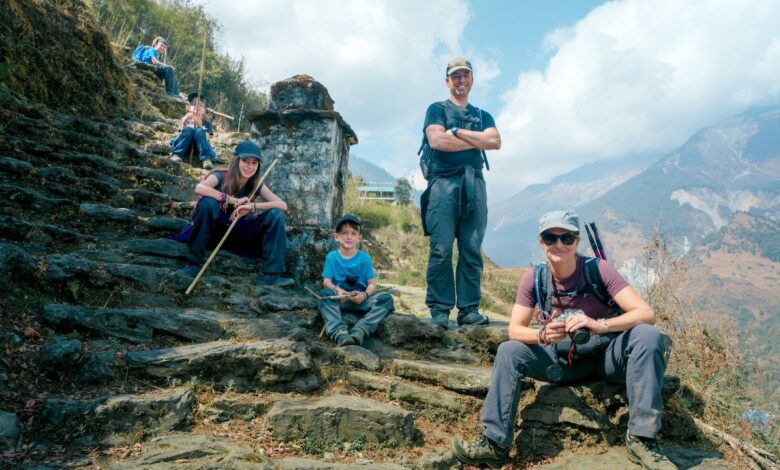‘Blink’ review: a Canadian family’s vacation videos as a documentary


Director: Daniel Roher, Edmund Stenson| Playing time: 83 minutes | Year: 2024
Daniel Roher made an impact two years ago with the revealing documentary Navalnya film that has arguably taken on even more impact due to the untimely death of the Russian opposition leader. This year Roher allows us to sympathize and travel within a completely different demographic. No political leader is central, but rather an “ordinary” Montreal family who faced an unusual illness. At least three out of four children suffer from Retinus pigmentosa, a progressive hereditary disease that affects the retina. As five-year-old Colin says: “Now my field of vision is as big as the planet, but soon it will be like looking through a straw.”
The Pelletier family will have to prepare for the future. Mother Édith says that they come from a family that is agitated and sometimes not very connected to a new reality. The hustle and bustle persists, of course, but medical facts made them decide to completely change course (for a while). To maximally strengthen children’s visual memory, they go on a trip around the world. Financial flexibility is guaranteed by Father Sébastien’s actions, so they travel to the adventure on two hundred dollars a day.
The night train in Botswana, eating ice cream in Türkiye and horseback riding in Mongolia are just the beginning. Everything the kids have on their globe-trotting wish list is checked off. Roher and co-director Edmund Stenson traveled and made this positive film, which seems a bit redundant. Because it is actually Blink nothing more than a collection of Christmas movies with the occasional interview and reflection on the situation the family finds itself in. And hey, anyone who’s ever had to watch someone else’s vacation video (who hasn’t?) knows that it’s ultimately not as interesting if you weren’t there.
The central point of the story and the reason for the trip is, of course, the children’s illness. However, the medical aspect does not play such an important role in the documentary. We see the children practicing with a guide dog (one of them wonders if they can get a cat too) and there is little explanation as to how the condition will develop. More important, however, are reflections on children’s experiences and social development.
Édith and Sébastien know how to express their thoughts and feelings well. Of course they are worried about the future, but with the social and cultural background that their children will acquire during their trip, they still look forward to it with confidence. Accepting the situation is the only thing that can be done, as the neighbors also urge during the trip. It’s a lesson that can benefit everyone at times, whether they are sick or not. The Pelletier family changed their way of life under the pressure of circumstances, but why shouldn’t that decision be for everyone?
Almost all children naturally benefit from the experiences gained on a world trip, which will stay with him or her (visually) for the rest of their lives. However, financially this is only within the reach of a fraction of parents (you also have to take time off). The Pelletiers travel on a fairly small budget, but their situation seems very privileged. Parents are also a bit self-righteous and the lessons they learn along the way are actually open doors. Good, because everyone has to go through this on their own, but the question remains why does this have to be on television?
Blink can be seen in Disney+.